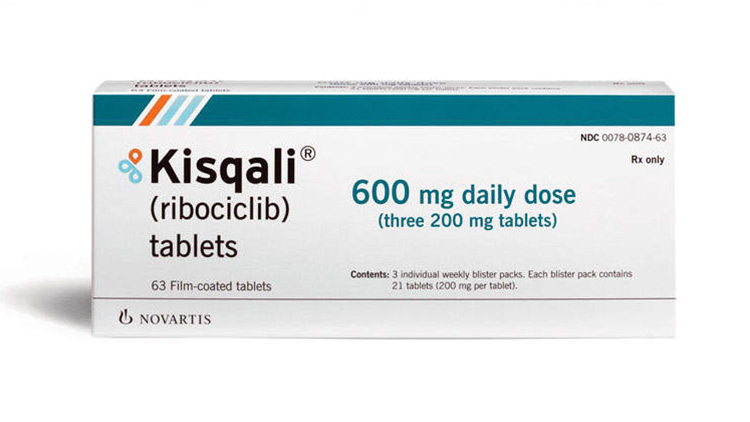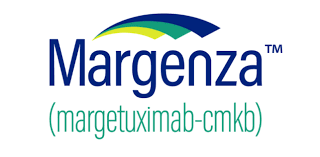Kisqali (ribociclib) vs Margenza (margetuximab-cmkb)
Kisqali (ribociclib) vs Margenza (margetuximab-cmkb)
Kisqali (ribociclib) is a CDK4/6 inhibitor used in combination with an aromatase inhibitor for the treatment of pre/perimenopausal or postmenopausal women with hormone receptor-positive, HER2-negative advanced or metastatic breast cancer, as initial endocrine-based therapy. Margenza (margetuximab-cmkb) is an anti-HER2 monoclonal antibody indicated, in combination with chemotherapy, for the treatment of patients with metastatic HER2-positive breast cancer who have received two or more prior anti-HER2 regimens, at least one of which was for metastatic disease. The choice between these two medications would be influenced by the specific characteristics of the breast cancer, such as hormone receptor and HER2 status, as well as prior treatments, making it crucial for a patient to discuss their individual case with their oncologist to determine the most appropriate therapy.
Difference between Kisqali and Margenza
| Metric | Kisqali (ribociclib) | Margenza (margetuximab-cmkb) |
|---|---|---|
| Generic name | Ribociclib | Margetuximab-cmkb |
| Indications | HR-positive, HER2-negative advanced or metastatic breast cancer | Metastatic HER2-positive breast cancer |
| Mechanism of action | Cyclin-dependent kinase 4/6 (CDK4/6) inhibitor | Monoclonal antibody targeting HER2 |
| Brand names | Kisqali | Margenza |
| Administrative route | Oral | Intravenous |
| Side effects | Neutropenia, nausea, infections, fatigue, diarrhea | Infusion-related reactions, fatigue, nausea, diarrhea, vomiting |
| Contraindications | QT prolongation, liver impairment, hypersensitivity to ribociclib | None known specifically; use caution in patients with hypersensitivity to margetuximab-cmkb or its excipients |
| Drug class | Kinase inhibitor | Monoclonal antibody |
| Manufacturer | Novartis | MacroGenics, Inc. |
Efficacy
Efficacy of Kisqali (Ribociclib) in Breast Cancer
Ribociclib, marketed as Kisqali, is a targeted therapy drug that has been approved for the treatment of certain types of breast cancer. Specifically, it is used in combination with an aromatase inhibitor for the treatment of premenopausal and postmenopausal women with hormone receptor-positive, human epidermal growth factor receptor 2-negative (HR+/HER2-) advanced or metastatic breast cancer. Clinical trials have demonstrated that Kisqali, in combination with letrozole, significantly increases progression-free survival compared to letrozole alone. The MONALEESA-2 trial, for instance, showed a median progression-free survival of over 25 months for patients treated with the combination of Kisqali and letrozole, compared to 16 months for those who received letrozole alone.
In addition to its use with an aromatase inhibitor, Kisqali is also approved for use with fulvestrant in women who have received prior endocrine therapy. In the MONALEESA-3 trial, patients treated with Kisqali plus fulvestrant experienced a median progression-free survival of 20.5 months, versus 12.8 months for those receiving fulvestrant alone. These results indicate that Kisqali is effective in prolonging the time before the disease progresses in women with HR+/HER2- advanced or metastatic breast cancer.
Efficacy of Margenza (Margetuximab-cmkb) in Breast Cancer
Margenza (margetuximab-cmkb) is a monoclonal antibody that has been approved for use in combination with chemotherapy for the treatment of adult patients with metastatic HER2-positive breast cancer who have received two or more prior anti-HER2 regimens, at least one of which was for metastatic disease. The approval of Margenza was based on the results of the SOPHIA study, which demonstrated an improvement in progression-free survival. Patients who received Margenza in combination with chemotherapy had a median progression-free survival of 5.8 months compared to 4.9 months for those who received trastuzumab plus chemotherapy.
While the improvement in progression-free survival with Margenza is modest, it provides an additional treatment option for patients with HER2-positive metastatic breast cancer who have progressed on previous therapies. The SOPHIA study also showed a trend toward improved overall survival with Margenza, although these results were not statistically significant at the time of the analysis. Further studies are ongoing to fully understand the potential survival benefits of Margenza in this patient population.
Regulatory Agency Approvals
Kisqali
-
European Medical Agency (EMA), European Union

-
Food and Drug Administration (FDA), USA

-
Health Canada

-
Therapeutic Goods Administration (TGA), Australia

-
Medsafe (NZ)

Margenza
-
Food and Drug Administration (FDA), USA

Access Kisqali or Margenza today
If Kisqali or Margenza are not approved or available in your country (e.g. due to supply issues), you can access them via Everyone.org.
How it works

Make an enquiry
Choose the medicine you want to buy, answer a couple of questions, and upload your prescription to speed things up. We’ll get back to you within 24 hours.


Make an enquiry
Choose the medicine you want to buy, answer a couple of questions, and upload your prescription to speed things up. We’ll get back to you within 24 hours.


Breeze through the paperwork
We'll guide you through the required documents for importing unapproved medicine, ensuring you have all the necessary information.


Get a personalized quote
We’ll prepare a quote for you, including medicine costs and any shipping, administrative, or import fees that may apply.


Receive your medicine
Accept the quote and we’ll handle the rest - sourcing and safely delivering your medicine.

Some text on this page has been automatically generated. Speak to your physician before you start a new treatment or medication.
Let's talk
If you have any questions, call us or send us a message through WhatsApp or email:
Contact us




